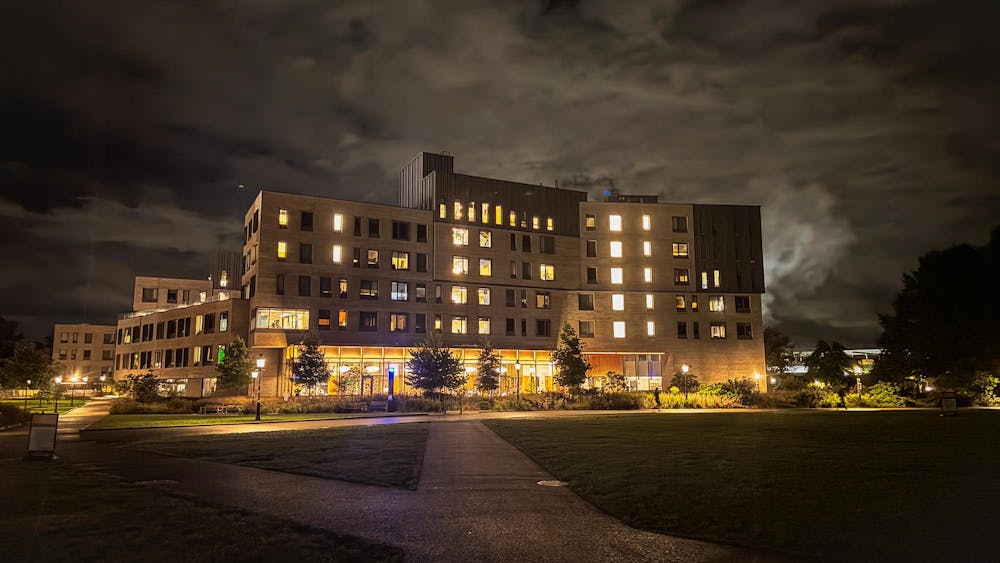The Class of 2029 is the first incoming class to have experienced the pandemic as middle schoolers, meaning they experienced all of high school in person.
In interviews with The Daily Princetonian, first-years, upperclassmen, and professors described how the impacts of virtual learning and the pandemic continue to shape college life — including that first-years may have an academic advantage over other recent class years.
“I do feel like I have an advantage compared to the previous classes,” Andy Pham ’29 said adding that he still believes the effects of Covid-19 education persisted after in-person learning resumed.
Pham noted that academic expectations and workloads seemed lighter in high school as a result of pandemic-era online learning, recalling easier grading policies and more lenient deadlines. “Fortunately, because of the lighter academic expectations, I didn’t have to try as hard. In contrast, it meant I did not learn as much and was less prepared moving forward,” he said.
“It was definitely better that none of high school was online because high school is just a lot more rigorous” Alex Wszolek ’29 told the ‘Prince.’ “The social life is a lot more important — being with others, learning together.”
However, it’s not clear that the differences in the Class of 2029 are all positive. Professor Robert Vanderbei, who teaches FRS 131: Sizing Up the Universe, noted that classroom participation for the Class of 2029 is quieter compared to previous years.
“Every year there’s a couple students in the class who answer every question and are totally enjoying it, and then there are other students who will answer questions if I direct it to that student, and then there might be in most [classes] one student who really isn’t involved,” Vanderbei said. “This year, that middle class is a little bit quieter than in previous years.”
In contrast, older Princeton students recalled spending months of supposedly formative high school instruction in bed or zoning out. Rylie Tatum ’28 remembered struggling to focus during virtual learning in eighth and ninth grade.

“It demonstrated how much I needed to actually pay attention in class versus when the online materials would be posted separately,” she said.
Octavia Jones ’26 shared a similar sentiment about virtual learning in high school. “I pretty much just did school in my bed or my chair, in my pajamas. Sometimes the computer camera was on, sometimes the camera was off,” Jones told the ‘Prince.’ “I began to love my bed a bit more.”
That’s not to say that Princeton first-years didn’t slack off; it just occurred during middle school instead.
“I just had my [Nintendo] switch next to me because there really was nothing else to do,” Wszolek said.

Callum Hegarty ’29 recalled using online school during middle school to play video games and chat with friends, saying that he “definitely wasn’t learning as effectively as if it were in person.”
The Class of 2029 has also had to uniquely contend with a different educational force: the rise of AI chatbots, with the release of ChatGPT their sophomore year of high school.
Ashley Holmes ’26, a course assistant for FRS 145: The Memory of Trees: Analyzing Climate History with Dendrology, feels that the quality of student work has not decreased, even as AI tools become more common.
“I think the most important thing for this class is thinking of creative problems to research … I haven’t noticed a decrease in the class's ability to do so,” she said, noting her small sample size of 11 students.
Ying Ou, instructor for CHI 103: Intensive Elementary Chinese, said students seem less reliant on electronics in class.
“In previous years, many students preferred using laptops or iPads to take notes or assist their learning, but this year, fewer students use such devices during class. As a result, they appear more focused and engaged in classroom activities,” Ou shared with the ‘Prince.’
However, Michael Hecht, professor for CHM 201: General Chemistry I, has not observed major differences between the Class of 2029 and Princeton’s three preceding classes. Instead, he said that his own course structure has changed. Most notably, he no longer grades problem sets for accuracy, but simply for completion.
“We don’t grade them on the answers anymore, because if we did, everybody’s going to cheat, so why bother?” he said.
The University, too, has been disposing of the lingering elements of the pandemic era. Earlier this semester, the University announced that it would once again require undergraduate applicants to submit SAT or ACT test scores again beginning with the admissions cycle during the 2027–28 school year.
The effect of having in-person high school for all four years is ultimately unclear. “I look out at the class as a whole, and again, like, I don’t know … I’m just not sure if I can tell the difference,” Hecht said.
Justus Wilhoit is a head Audience editor and senior News writer for the ‘Prince.’ He is from Kenosha, Wis. and typically covers Princeton’s eating clubs and co-ops, identity and student life, and the Trump administration.
Benedict Hooper is a News contributor for the ‘Prince.’ He is from Greenwich, Conn. and can be reached at bh3193[at]princeton.edu.
Please send any corrections to corrections[at]dailyprincetonian.com.








